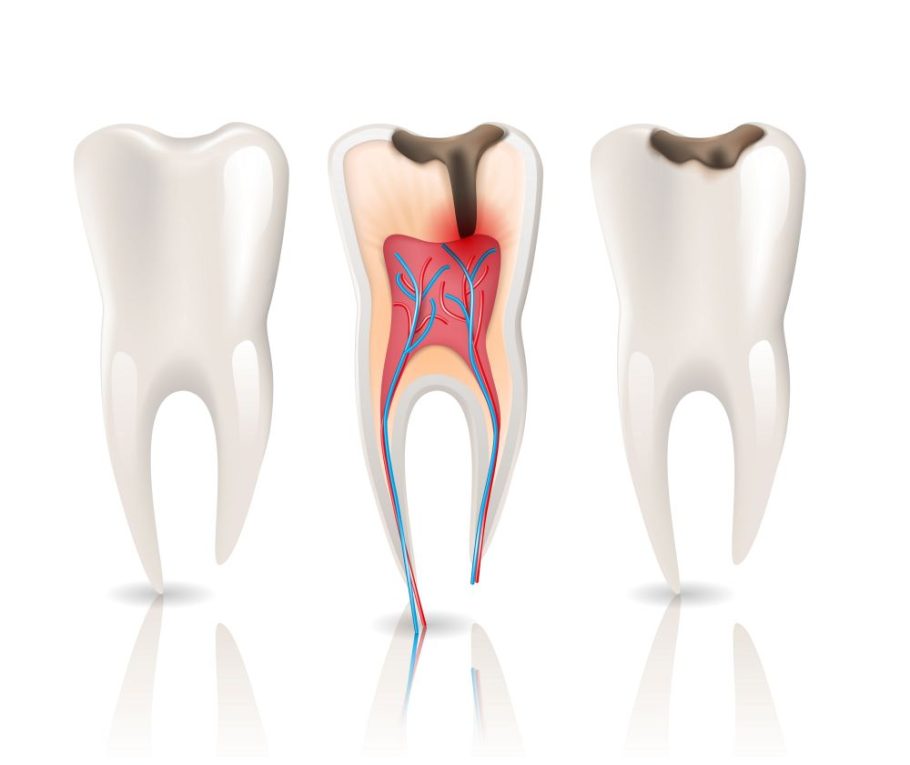Dental caries, commonly known as tooth decay or cavities, is one of the most prevalent oral health issues worldwide. It affects people of all ages, from children to the elderly, and can lead to significant discomfort and long-term dental problems if left untreated. While many people understand the basic concept of cavities, there’s much more to dental caries, including its causes, stages, preventive measures, and treatment options. This blog will provide an in-depth look at dental caries, helping you understand how to protect your teeth and maintain long-term oral health.
“Every tooth in a man’s head is more valuable than a diamond.” – Miguel de Cervantes
What Are Dental Caries?
Dental caries is the destruction of tooth enamel and dentin due to the action of bacteria in the mouth. The process begins when carbohydrates (sugars and starches) from foods and drinks combine with bacteria on the surface of the teeth. These bacteria produce acids that attack the enamel, gradually breaking it down and creating cavities or holes in the teeth.
Caries are categorized into different stages based on how deep the decay has penetrated the tooth structure:
- Initial Caries – White spots on the tooth surface indicate the start of demineralization.
- Enamel Caries – A cavity begins forming in the enamel layer of the tooth.
- Dentin Caries – The decay progresses to the softer, more vulnerable dentin layer.
- Pulpitis – The decay reaches the tooth’s pulp, which contains nerves and blood vessels, leading to significant pain and potential infection.
- Abscess – If left untreated, the infection can form a dental abscess, a serious condition that can spread to surrounding tissues.
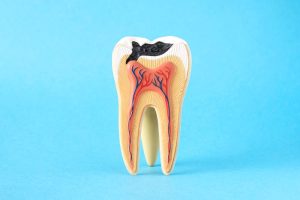
Dental Caries Causes:
The development of dental caries is multifactorial, involving diet, bacteria, oral hygiene habits, and other factors. Some of the key causes include:
- Poor Oral Hygiene: Inadequate brushing and flossing allow plaque and bacteria to accumulate on the teeth, increasing the risk of decay.
- High Sugar and Acidic Diet: Frequent consumption of sugary foods and acidic drinks promotes bacterial growth and weakens the enamel, speeding up the decay process.
- Dry Mouth (Xerostomia): Saliva helps wash away food particles and neutralize acids. A lack of saliva, caused by dehydration, certain medications, or medical conditions, can accelerate tooth decay.
- Bacteria in the Mouth: Certain strains of bacteria, especially Streptococcus mutans and Lactobacillus, are known to produce acids that erode tooth enamel.
- Genetics: Some people are more genetically predisposed to dental caries due to factors like enamel strength, saliva composition, and the alignment of their teeth.
- Age: While caries can affect people of all ages, younger children and older adults may be more vulnerable due to varying oral care habits, thinner enamel, and medical conditions.
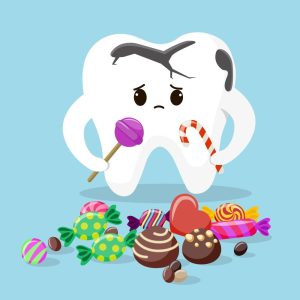
Dental Caries Symptoms:
Dental caries often start silently, with no obvious symptoms until the decay has advanced. However, early detection is key to preventing severe damage. The most common symptoms include:
- Tooth Sensitivity: A common early sign of cavities, sensitivity can occur when consuming hot, cold, sweet, or acidic foods and beverages.
- Toothache: As the decay progresses, it can irritate the nerves inside the tooth, leading to intermittent or persistent pain.
- Visible Holes or Pits: Cavities may manifest as visible holes or dark spots on the surface of the teeth.
- Bad Breath: The bacteria responsible for tooth decay can also lead to persistent bad breath.
- Discolouration: White, brown, or black stains on the tooth surface may indicate early or advanced decay.
- Swelling or Abscess: If an infection forms, you may notice swelling, pus, or a foul taste in your mouth, indicating the need for immediate dental attention.
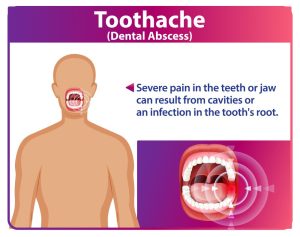
Dental Caries Prevention:
The good news is that dental caries can be largely prevented with proper oral hygiene practices and lifestyle changes. Here are some of the most effective ways to reduce your risk of tooth decay:
- Brush Regularly and Properly: Brush your teeth at least twice a day with fluoride toothpaste. Make sure to brush all surfaces of your teeth and gums using a soft-bristled brush and gentle, circular motions.
- Floss Daily: Flossing removes plaque and food particles between the teeth, where brushing may not reach. Floss at least once a day to maintain gum health and prevent decay in these areas.
- Limit Sugary and Acidic Foods: Cut back on sugary snacks and drinks, such as candies, sodas, and fruit juices, which feed bacteria in the mouth and lead to acid production. Try to eat a balanced diet with plenty of fruits, vegetables, and whole grains.
- Stay Hydrated: Drink water frequently, especially after meals, to help rinse away food particles and bacteria. Water also stimulates saliva production, which helps neutralize harmful acids.
- Chew Sugar-Free Gum: Chewing sugar-free gum can stimulate saliva production and help reduce the buildup of plaque between meals.
- Use Fluoride Products: Fluoride strengthens tooth enamel and helps prevent cavities. Use fluoride toothpaste and consider fluoride treatments from your dentist, especially if you are at higher risk for cavities.
- Regular Dental Checkups: Visit your dentist every six months for a professional cleaning and examination. Early detection of caries allows for more conservative treatments and prevents the decay from progressing.
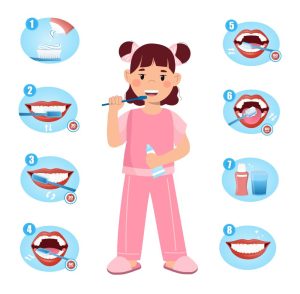
Dental Caries Treatment:
If dental caries develop despite preventive efforts, dental treatment is essential to avoid further damage to the teeth. The type of treatment depends on the stage of decay.
- Fluoride Treatments: In the early stages of dental caries, professional fluoride treatments can help remineralize the enamel and reverse the decay. These treatments are more concentrated than over-the-counter fluoride products and are applied by a dentist.
- Dental Fillings: For cavities that have progressed beyond the enamel, your dentist may remove the decayed portion of the tooth and fill the area with a material such as composite resin, amalgam, or gold.
- Dental Crowns: In cases where the decay is extensive and has weakened the tooth, a crown may be necessary to restore its shape and function. Crowns are custom-made caps that cover the entire tooth.
- Root Canal Therapy: A root canal may be required if the decay has reached the tooth pulp, causing infection or abscess. This procedure involves removing the infected pulp, cleaning the root canals, and sealing the tooth to prevent further infection.
- Tooth Extraction: In severe cases where the tooth is beyond repair, extraction may be necessary. Your dentist may then recommend a dental implant or bridge to replace the missing tooth.
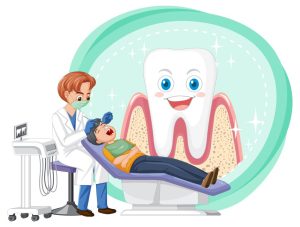
Conclusion:
Dental caries is a common yet preventable dental problem. By adopting good oral hygiene habits, making smart dietary choices, and visiting your dentist regularly, you can significantly reduce your risk of developing cavities. If decay does occur, early detection and treatment are crucial to preserving your teeth and avoiding more complex dental procedures.
Omega Hospitals offers comprehensive dental care services, including preventive treatments, cavity fillings, and advanced restorative procedures. Our experienced dental team uses state-of-the-art technology to ensure oral health is in the best hands. Whether you need a routine checkup or a more involved treatment like a root canal, we’re here to help you maintain a healthy, pain-free smile.

